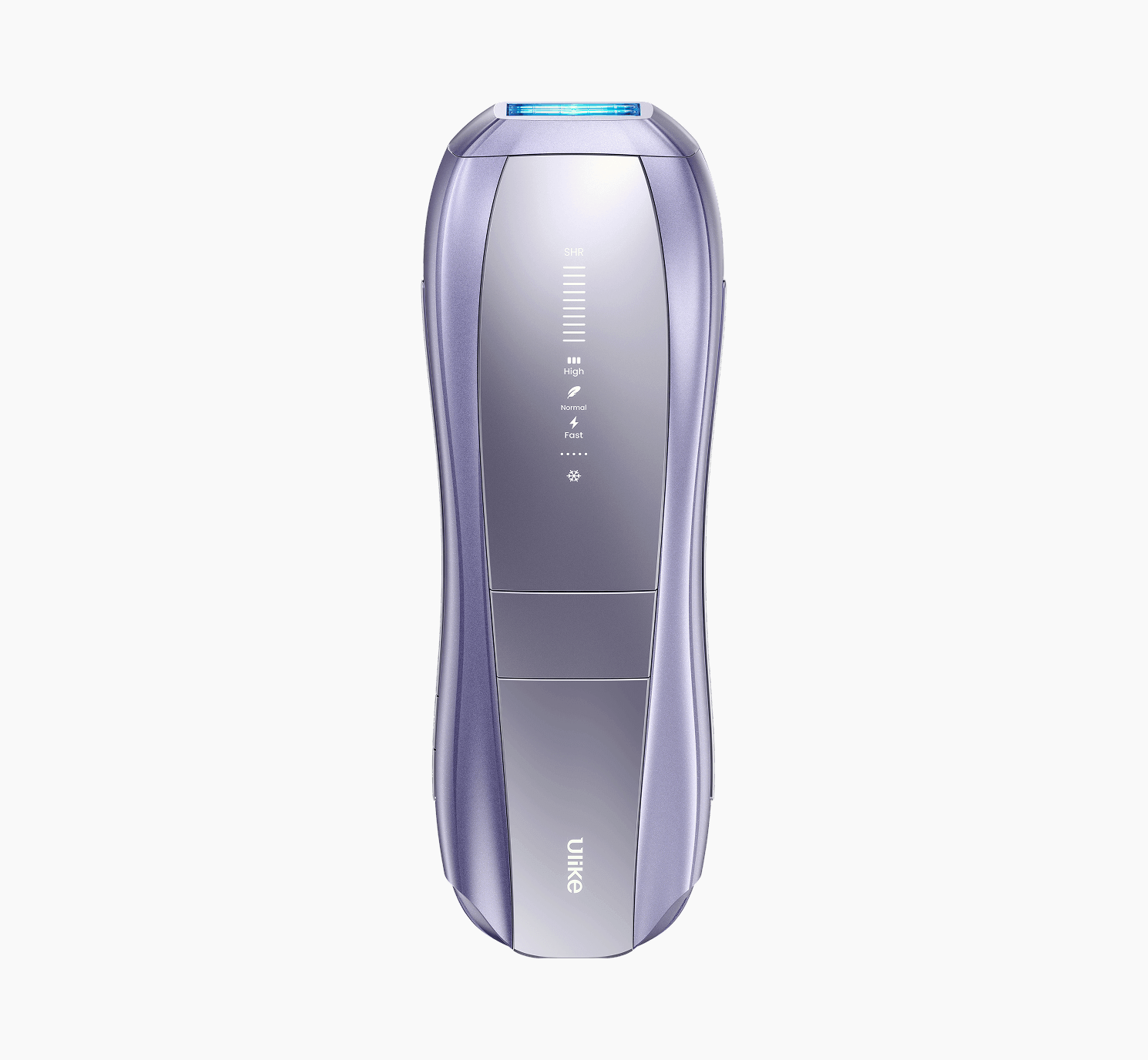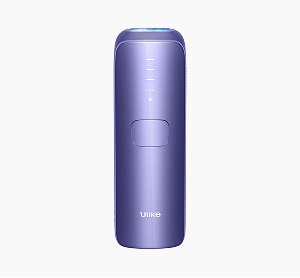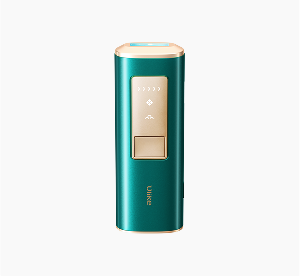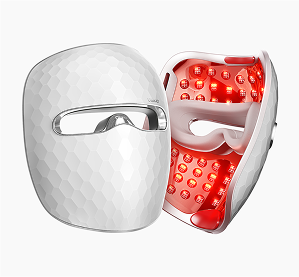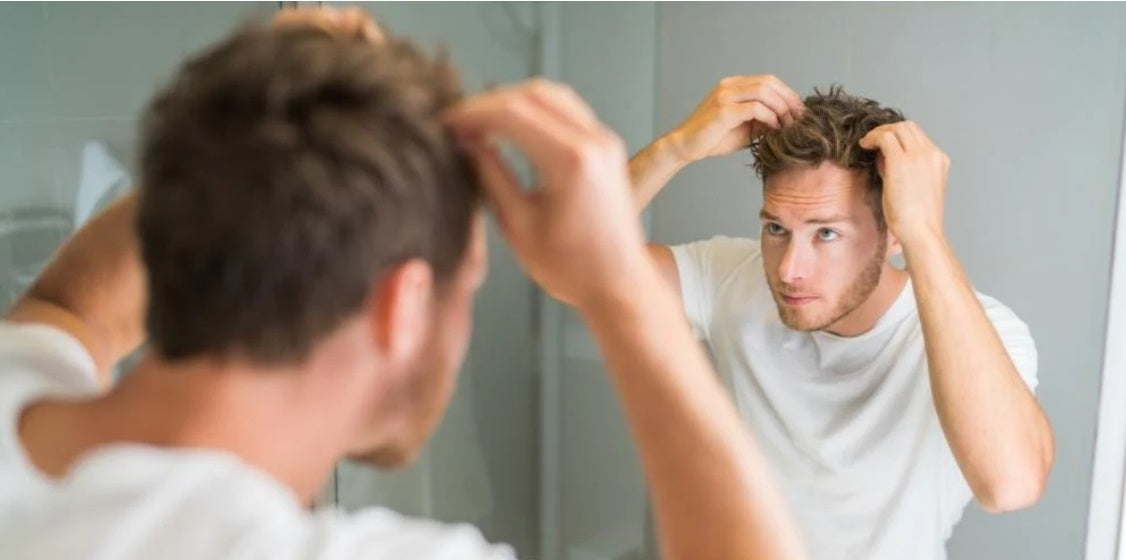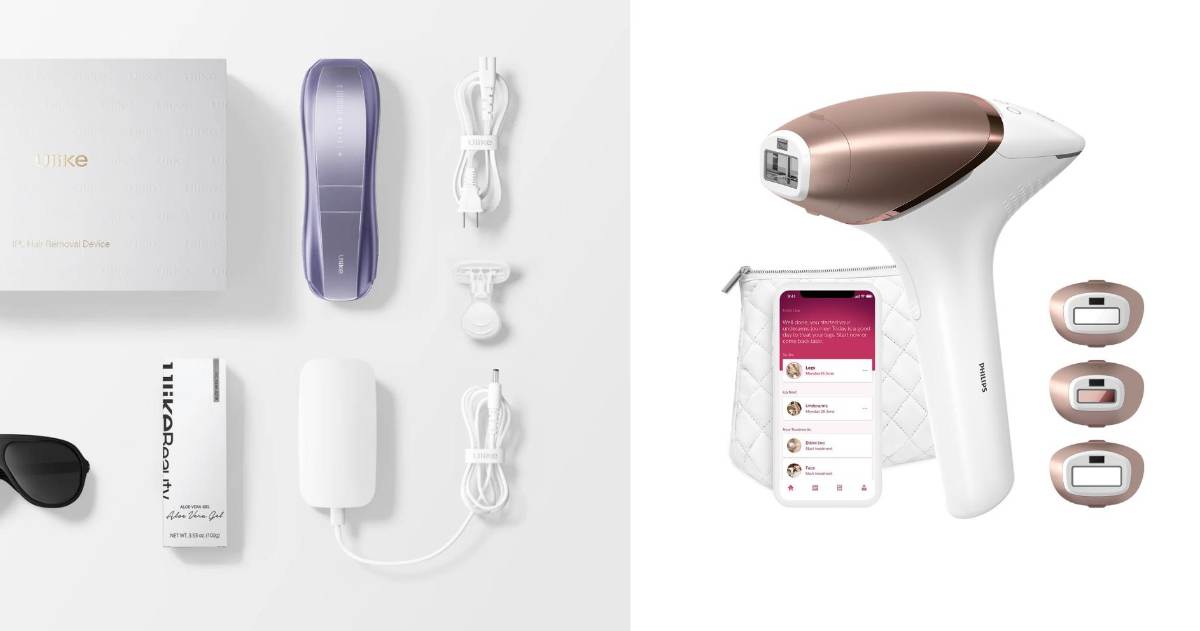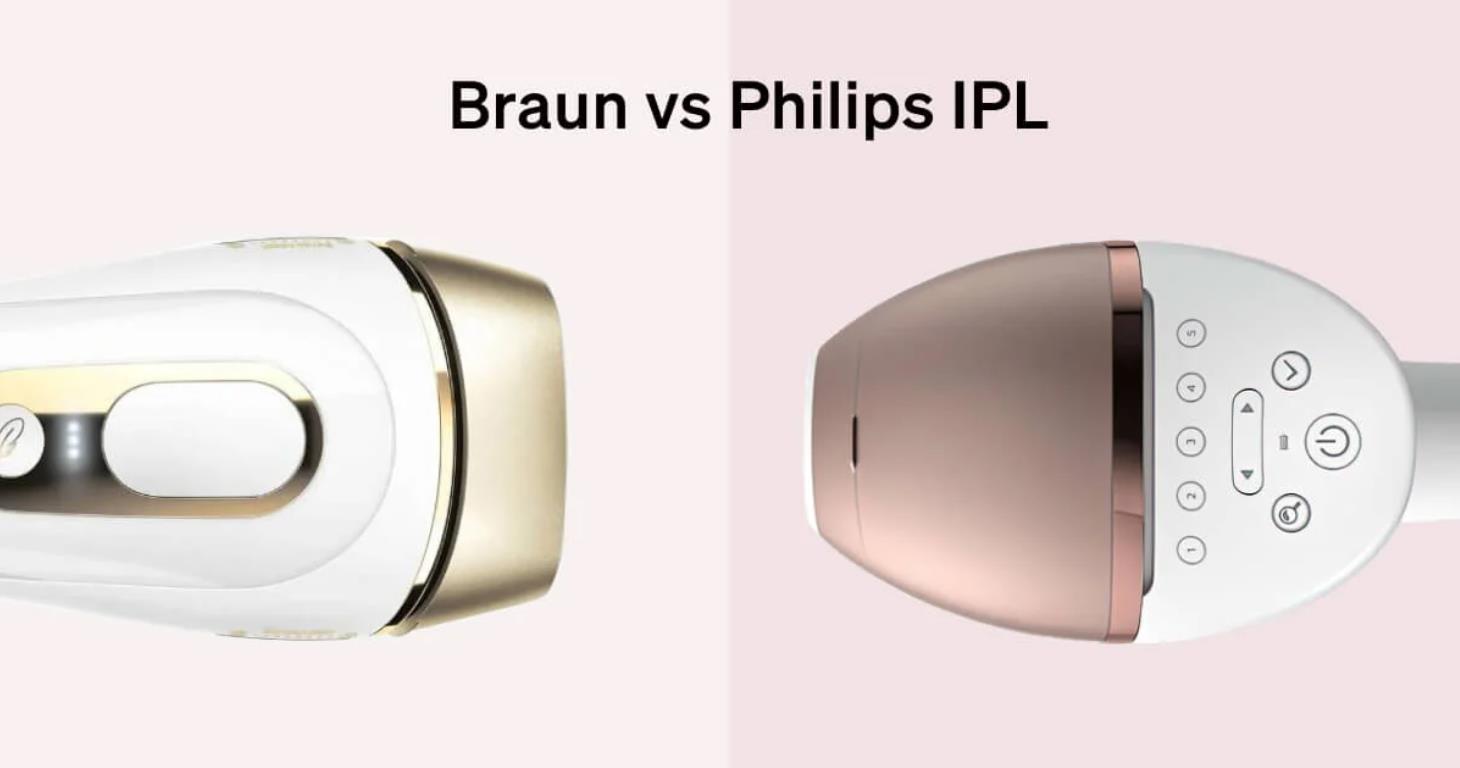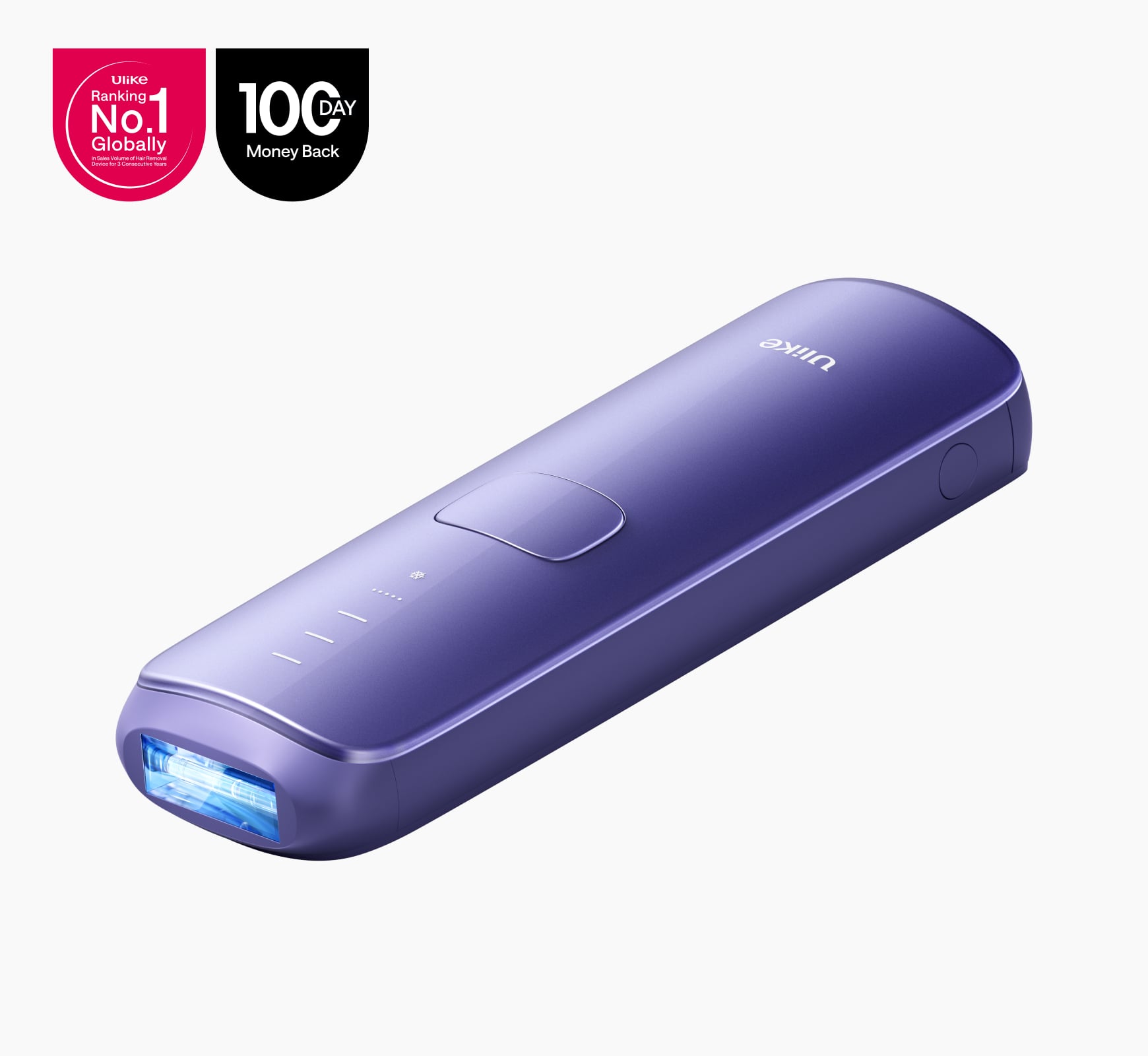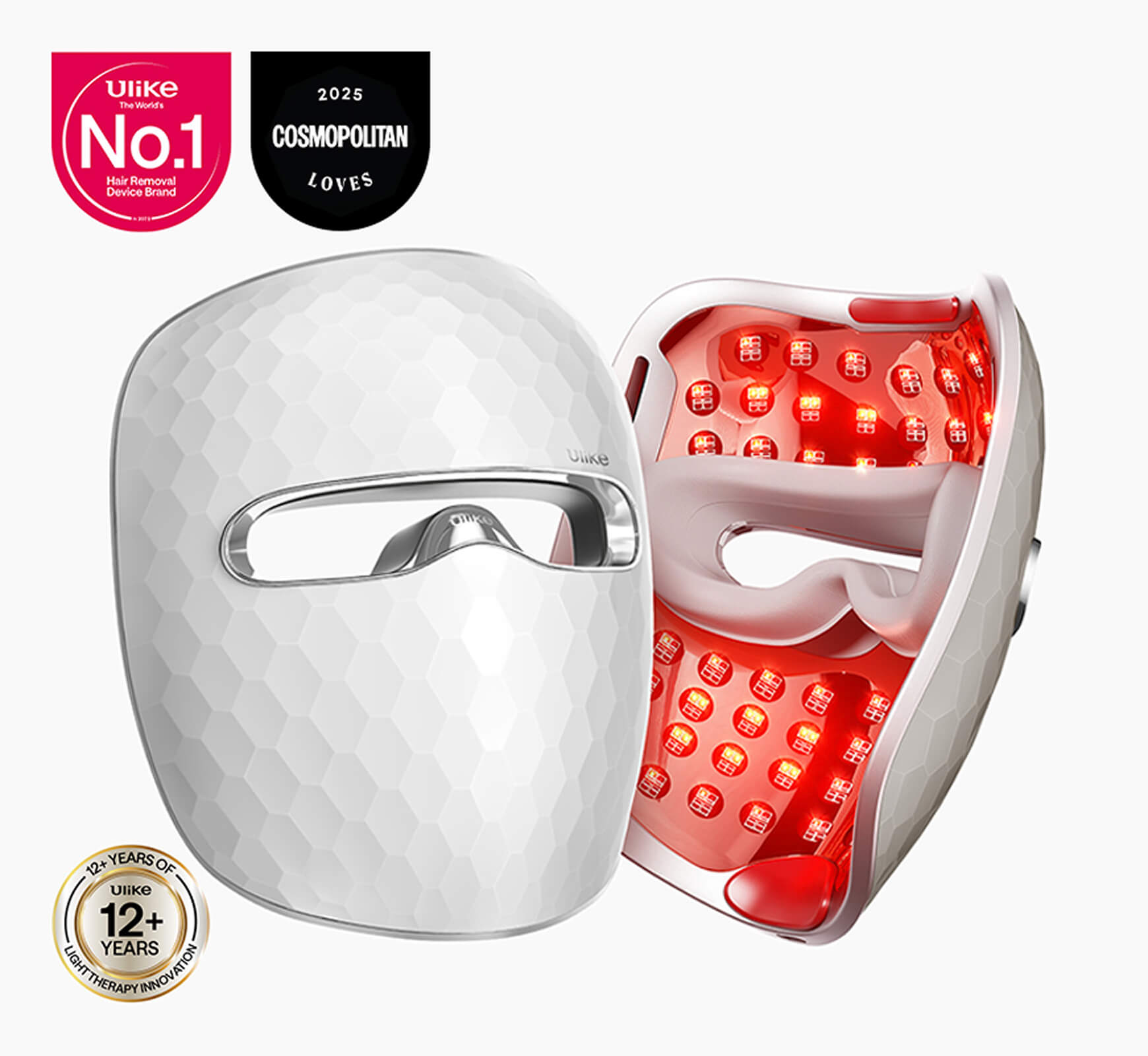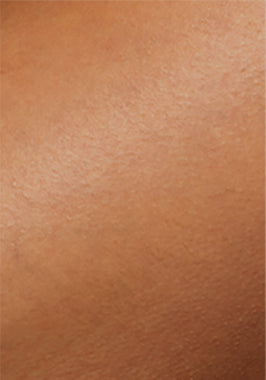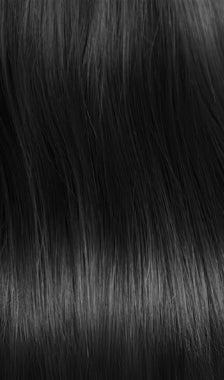If you have greasy hair - welcome to the club - and here's how to get out of it. How often do you wash your hair, and how long does it take for it to become quite greasy? Many of us have experienced the frustration of hair that looks and feels greasy far too quickly, despite our best efforts to keep it clean and fresh. Dry shampoos are a common go-to solution for a lot of women, as well as men. You can turn to loads of different natural at-home remedies, as well as tips and tricks (and tools) that can fix this. In this blog post, we're going to talk about greasy hair and explore effective strategies to keep it at bay. Here is how to get balanced (non-greasy) locks.
1. Why is My Hair Greasy after I Wash it?
If you're trying to find someone (or something) to blame, look at the following reasons:
 A) Sebum production - your scalp naturally produces an oily substance called sebum to keep your hair moisturised and protected. However, some individuals produce more sebum than others, resulting in faster greasiness. If you have naturally oily skin there’s a good chance you’ll also have an oily scalp. If your pores get clogged you will have a hard time washing your hair, which is why it’s essential to wash and clean your hair with the right products.
A) Sebum production - your scalp naturally produces an oily substance called sebum to keep your hair moisturised and protected. However, some individuals produce more sebum than others, resulting in faster greasiness. If you have naturally oily skin there’s a good chance you’ll also have an oily scalp. If your pores get clogged you will have a hard time washing your hair, which is why it’s essential to wash and clean your hair with the right products.
B) Hair texture - what type of hair do you have? Some types get oilier than others. For instance, straight hair tends to allow oil to move down the hair shaft more easily, leading to quicker greasiness compared to curly or wavy hair. In a lot of cases, curly hair is quite dry, which is why additional moisture, sweat, or oils will work well in that case. C) Look at your washing habits - how often do you wash your hair? There's both: overwashing and underwashing. By not treating your locks properly you can disrupt the natural oil balance. Washing too often can strip away too much oil, and washing it not too often will lead to oil build-up. Aim for that sweet spot and somewhere right in the middle, ideally every 3-4 days.
C) Look at your washing habits - how often do you wash your hair? There's both: overwashing and underwashing. By not treating your locks properly you can disrupt the natural oil balance. Washing too often can strip away too much oil, and washing it not too often will lead to oil build-up. Aim for that sweet spot and somewhere right in the middle, ideally every 3-4 days.
D) What products you're using - avoid heavy products, as well as anything that's filled with sulfates, parabens, or artificial dyes.
E) Environmental factors - where you live and what surrounds you is another paramount factor. Did you know that humidity and pollution can attract dirt and oil to your scalp? Think about your surroundings before you start blaming your everyday tools or items.
F) Hormonal imbalance - women who are pregnant, as well as those in puberty will have a lot of hormonal changes, which could result in the texture of their hair. Speaking of that are you pregnant, and do you have a hair belly? Here's an article specifically just for you: https://uk.ulike.com/blogs/news/hairy-belly-during-pregnancy
But in conclusion, anyone can have greasy hair at one point or another. There are no specific requirements for this to happen to you, no matter the length, style colour, and texture of your hair.
PS: If you're concerned about excessive greasiness talk to a dermatologist, your hairstylist, or a professional for personalised guidance.
2. How to Make Your Hair not Look Greasy in 5 Minutes?
 Do you have somewhere you need to be? And you want to know how to stop hair from getting greasy in the shortest time possible? Here are your options!
Do you have somewhere you need to be? And you want to know how to stop hair from getting greasy in the shortest time possible? Here are your options!
B) Use baby powder - if you're out of dry shampoo just know that baby powder can also do the trick.
C) A hairbrush - make sure you brush your hair thoroughly to distribute natural oils from the scalp throughout your hair strands. Do this once you apply dry shampoo, and bring the brush with you everywhere you go.
D) Change your parting - switch up your hairstyle as this will create a new pattern and hide your oils. Try out a new look and watch how others give you compliments.
E) Wear your hair up - tie your hair up in a ponytail or a stylish bun. Use big pins, clips, as well as scarves to hide away the imperfections.PS: While you're at it, you can also apply a small amount of lightweight styling product, such as a texturizing spray or hair serum to add definition.
F) Try air drying - most hairstylists will tell you that excessive use of heat and styling tools will continue to increase grease. Go for a leave-inconditioner on your ends post-wash instead of oil, as it maintains a fresh look while reducing drying time. Let your hair air-dry for the best results.
3. How to Stop My Hair from Going Greasy in the Long Run?
 Wondering why is my hair greasy after I wash it? If your hair gets greasy the minute you wash it you will need to try out some different methods. Here's what you can do and how you can fix this problem in the long-run:
Wondering why is my hair greasy after I wash it? If your hair gets greasy the minute you wash it you will need to try out some different methods. Here's what you can do and how you can fix this problem in the long-run:
B) Always wash your hair with lukewarm water. Don't go for too hot or too cold water, and stick somewhere in the middle. Lukewarm water will not stimulate severe or excess oil production.
C) Shampoo your scalp, and not your ends. The main ''root'' of your problems is in your roots, which is why it's important to pay close attention to your scalp.
D) Don't use high heat. You should stay away from hair curling wands, straighteners, and blow-driers. The more natural - the better! Here are some good ideas for guys who may be struggling with the texture of their hair, or guys who are receding!
E) Don't touch your hair, and keep it out of your face. Your fingertips are probably quite greasy due to external factors and all the food you eat. Don't touch your hair to avoid the greasiness.
F) Invest in your hair-care products, especially your dry shampoo and conditioner. It's crucial to choose the right products for your hair, not just how you wash it. Stay away from products with labels such as dry or damaged since they might lead to more greasiness and dullness.
4. FAQ
Is overwashing good or bad for you?
Overwashing or underwashing, which one is worse? Most hairstylists and salon experts recommend you wash your hair in one of the following ways:
- If you have fine hair - wash your hair every other day
- If you have medium hair - wash it every three days
- If you have thick or curly hair - wash it every four days
Overwashing can be somewhat bad for you. The truth is that you can't train your hair to be less greasy by washing it less or more often. The main cause of your problem is on your scalp, not your locks. As long as your scalp is healthy, along with your body, so will your hair!
Are there advantages to greasy hair?
Although you might have more bad hair days than others, don't ''sweat'' it too much. The natural oil on your hair does have some beneficial purpose. It will protect your scalp from external factors while moisturising it and providing you with a healthy amount of shine. You will never have dry and dull-looking hair, which is not the case with thick curly locks.
Also, if you're dealing with dry or oily skin you can check out some of these skincare brands and products that can help you combat your issues and your concerns.
Conclusion
Ready to embrace your shiny new locks? By implementing some of these tips and tricks, every woman will get the hair of her dreams! Just make sure you cater the routine per your preference, and go for something that suits your skin and hair type. Experiment, and in no time you will have the answer to your question 'Why does my hair get greasy so fast', along with helpful solutions from this list!

